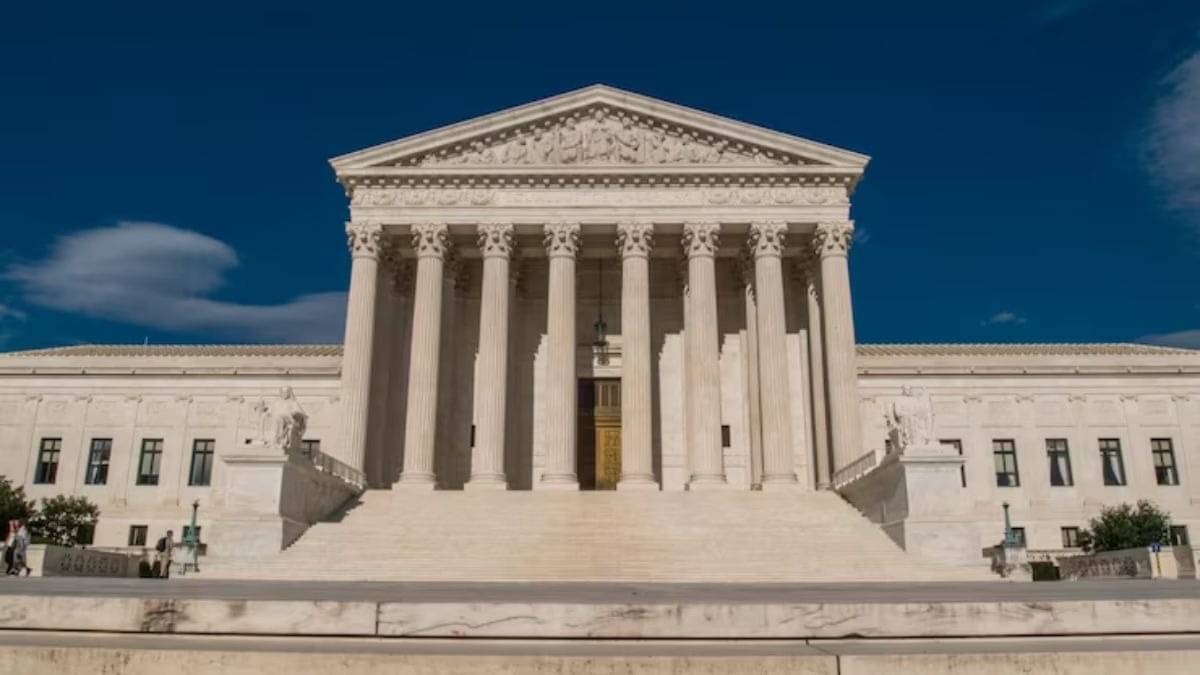$4 Billion Food Aid Funding: US Supreme Court Offers Temporary Relief To Trump Administration During Shutdown | Image:
Freepik
The Supreme Court of the United States, on Friday, has stepped in to allow the Trump administration to temporarily withhold around $4 billion in funding for a critical food assistance program, as the US government shutdown drags on.
This move affects SNAP, the Supplemental Nutrition Assistance Program, commonly known as food stamps, which supports about 42 million low-income Americans.
As Reuters reported, the court’s order, known as the administrative stay, provides breathing room for lower courts to consider the administration’s formal request to only partially fund the SNAP for November.
Justice Jackson’s Administrative Stay Explained
Justice Ketanji Brown Jackson, handling emergency appeals from states including Rhode Island, issued the administrative stay. This order pauses a lower court’s mandate that required the U.S. Department of Agriculture (USDA) to fully fund November’s SNAP benefits by Friday.
According to Reuters, the stay will expire two days after the Boston-based 1st U.S. Circuit Court of Appeals decides on the administration’s request to block the full payment.
In her ruling, Justice Jackson stated, “IT IS ORDERED that the District Court’s orders are hereby administratively stayed pending disposition of the motion for a stay pending appeal in the United States Court of Appeals for the First Circuit in case No. 25-2089 or further order of the undersigned or of the Court. This administrative stay will terminate forty-eight hours after the First Circuit’s resolution of the pending motion, which the First Circuit is expected to issue.”
Jackson emphasised that she anticipates the appeals court to handle the case “with dispatch,” signaling an expectation for a swift resolution.
Lower Court Battles and Administration’s Stance
The controversy stems from a ruling by U.S. District Judge John McConnell in Providence, Rhode Island. Appointed by former President Barack Obama, McConnell ordered the USDA to tap into emergency funds and a separate tariff-derived program, holding $23.35 billion for child nutrition, to cover the full SNAP costs for November, estimated at $8.5 billion to $9 billion monthly.
McConnell accused the Trump administration of holding back benefits for “political reasons,” a charge that sparked immediate pushback.
The administration had initially planned to suspend SNAP entirely due to shutdown-related funding shortages but later committed to $4.65 billion in partial emergency aid.
In response, U.S. Attorney General Pam Bondi decried McConnell’s decision as “judicial activism at its worst” in a post on X.
Department of Justice lawyers argued before the Supreme Court that enforcing the full funding would “sow further shutdown chaos” by creating “a run on the bank by way of judicial fiat.”
The 1st Circuit, with a panel of judges appointed by Democratic presidents, denied an initial administrative stay request from the administration but promised to rule quickly on the formal appeal.
Confusion and State Responses Amid Funding Uncertainty
Even as appeals unfolded, the USDA sent mixed signals. Hours before the Supreme Court’s intervention, the department notified states it was preparing to release full funds to comply with McConnell’s order.
This led several states, including New York, New Jersey and Massachusetts, to instruct agencies to proceed with issuing complete November benefits.
Massachusetts Governor Maura Healey, a Democrat, criticised the situation, saying, “President Trump should never have put the American people in this position.”
The legal challenge was brought by a group of cities, unions and nonprofits, represented by the progressive organisation Democracy Forward.
Their lawyers urged the 1st Circuit not to delay, warning of severe harm to nearly one in eight Americans reliant on SNAP. “The court should deny Defendants’ motion and not allow them to further delay getting vital food assistance to individuals and families who need it now,” they wrote.
Skye Perryman, head of Democracy Forward, told MSNBC that courts have consistently affirmed the administration’s duty to make these payments, Reuters reported.
Broader Impact on SNAP Recipients
For the first time in its 60-year history, SNAP benefits lapsed at the month’s start, forcing many recipients to rely on overburdened food pantries or cut back on essentials like medications.
Eligibility requires income below 130% of the US poverty line, with maximum monthly benefits set at $298 for a single-person household and $546 for two in the 2026 fiscal year.
